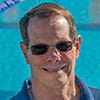USMS Coach Mentor Program Helps Coaches Across the Country
Mentees receive resources and advice from expert coaches to achieve professional results
Swim coaches must be insightful technicians, skilled diplomats, passionate motivators, and expert managers of aquatic chaos. They provide a service that enriches the lives of swimmers and positively contributes to the community.
Yet many people incorrectly view the job as something anyone can do, a perception U.S. Masters Swimming’s coach mentor program is working to change.
The Coaches Committee and Club and Coach Services initiated the coach mentor program in 2019 as part of an effort to help coaches obtain the tools and resources they need to elevate their program to the highest professional standards. “With the right skills and tools, a swim coach can make a living,” says Bill Brenner, USMS’s Chief Operating Officer.
Highly skilled coaches with successful programs and a history of service to USMS were selected to be mentors last year:
- Chris McPherson, coach of Ensworth Aquatic Masters in Nashville, Tenn.
- Kenny Brisbin, coach of Long Beach Grunions in California
- Marty Hendrick, coach of Swim Fort Lauderdale in Florida
- Susan Ingraham, coach of Masters of South Texas in San Antonio
- Kerry O’Brien, coach of Walnut Creek Masters in California
Mentor coaches were briefed on the program and assigned mentees. Marianne Groenings, Director of Club and Coach Development, says that mentors and mentees were matched based on how much the paired mentor and mentee had in common, both personally and in terms of their programs. The goal was to give the mentee a chance to learn from the coach on deck where possible, but to also examine the program by interviewing the mentor’s swimmers for their perspective.
“It was rewarding for me to be able to share my experiences to help my mentee continue to build her program,” says McPherson, who represented the Coaches Committee for this effort. “And it was a bonus to make a great new friend in the process.”
McPherson’s mentee, Megan Cameron, has been a competitive swimmer all her life and has always loved the sport. So, when the opportunity arose, she bit the entrepreneurial bullet and started her own club, MC Soakers, in the Arkansas LMSC. She had already acquired substantial training and certifications (USMS Level 2, ALTS, ASCA Level 2, USAT Level 1) but applied for the program because she wanted to take her program even further.
“The one-on-one time with Chris was so valuable,” Cameron says. “We were able to have a prolonged back-and-forth conversation, which really helped us identify concepts I could take back to my team.”
Other mentees echoed Cameron’s pleasure with the program, including comments on the insights gained into workout structure, communication with swimmers, and revenue-enhancement strategies. Cameron notes that McPherson pushed her to increase the number of workouts offered each week and suggested promotional ideas that she had been reluctant to try. The nudge from her mentor has paid off with more swimmers joining her program.
“Chris was so positive and encouraging,” Cameron says, noting that it was a real boost to recognize all the resources and support she could find in USMS.
Another common finding was that all coaches face similar challenges. USMS is a diverse organization; clubs welcome athletes of all ages, backgrounds, and abilities. Spending time with a mentor who has mastered the art of finding appropriate challenges and encouragement across this spectrum provides a level of comfort that’s sometimes missing when you coach in isolation.
That’s precisely the point of this program, Brenner says.
“We need more boots on the ground,” he says, noting that mentees can take what they’ve learned back to their LMSCs and network with others to strengthen the coaching community. “Coaching is a skilled profession that deserves to be properly compensated.”
Brenner says that LMSCs should add funding for mentorship programs and coach’s compensation to their annual budgets.
As more coaches acquire knowledge on how to build a solid organization with revenue from multiple arms of aquatics (ALTS, lessons, clinics, fundraising, etc.), the more people will have access to the benefits of swimming.
Cameron has taken this philosophy to heart, volunteering to serve as coaches chair for her LMSC, so she can share what she has learned with other coaches.
McPherson agrees with her mentee, noting that it’s all about connections.
“The knowledge and resources that we have available to us within USMS are fantastic,” she says. “We just need to all work together to help one another find tools that are needed for greater success.”
To apply to be either a mentor or mentee, please visit the USMS coach mentor program website. If you have other ideas about how to help coaches find resources and network with each other to achieve the recognition and compensation they deserve, please share them with Coach and Club Services.
Categories:
- Coaches Only
SIGN UP FOR UPDATES FROM USMS
















